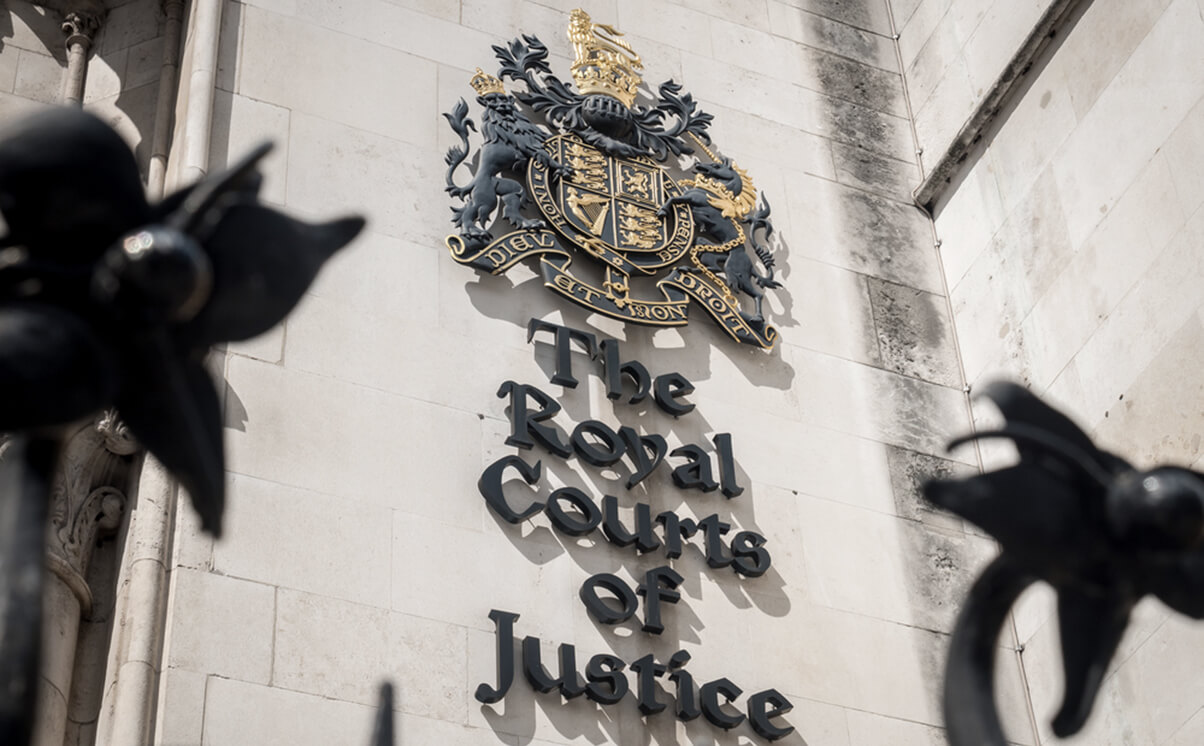A recent decision in the High Court upholding a financial award made in arbitration confirms the courts’ support for arbitration in financial proceedings. It also acts as a warning to anyone seeking to appeal a family arbitral award. Tim Carpenter and Lydia Fowler review the decision.
The Family Law Arbitration Scheme was launched in February 2012. Operating under the Arbitration Act 1996 procedure and rules, arbitration provides a quicker and more cost-effective way of resolving financial proceedings than the traditional court route.
The courts have supported the scheme and the recent case of BC v BG [2019] EWFC 7 provides guidance as to the effect that should be given to an arbitration award when parties agree to arbitrate disputes arising in financial proceedings.
The parties in this case turned to arbitration due to their frustrations with the long delays they experienced in the court system. This highlights one of the advantages of arbitration, which is the ability for the parties to manage the timetable to suit their needs.
Through the decision made in BC v BG and by upholding the arbitral decision when challenged, the court has bolstered the case for using arbitration in resolving financial issues in a divorce.
Background
The parties started cohabiting in 1998, had two children and subsequently married in 2006. After a 10 year marriage the parties separated in 2016.
The assets were approximately £1.1m inclusive of pensions. The husband’s net salary amounted to approximately £63,000, including bonuses, and the wife earned a gross income of £6,500.
The husband applied for financial relief in November 2016. Permission was granted for a single joint expert to report on the parties’ mortgage capacity and a three-day hearing was initially listed for February 2018. The hearing was adjourned until July 2018 due to the court not being able to accommodate the case. However, in July 2018 the hearing did not go ahead due to the judge being ill.
The parties, frustrated with the delays from the court and unwilling to wait any longer for another new court date, decided to arbitrate. A two-day arbitration hearing took place in July 2018 and a full and reasoned arbitration award was made a few weeks later in August 2018.
The award provided that:
- the parties net capital be divided 60:40 with £315,000 going to the wife and £214,000 going to the husband. This was due to an imbalance in mortgage capacities
- the husband to pay global maintenance initially at £1,600 per month, to reduce to £1,050 in July 2019, then to £650 in March 2022, and terminating upon his retirement, and
- a pension sharing order be made in favour of the wife (76%) in relation to the husband’s civil service pension.
However, in October 2018, the wife told the husband that she would appeal the award to the family court unless he agreed to go back to arbitration. The husband did not agree and the wife made an application asking the court to refuse to give effect to the arbitral award.
The wife’s application was made pursuant to the case of J v B (Challenge to Arbitral Award) [2016] EWHC 324 (Fam), which allowed a party to make an application on the notice to show cause procedure. The wife’s application was based on four main points:
- The wife’s assertion that she had no mortgage capacity amounting to a supervening event.
- The husband’s alleged non-disclosure that his pension contributions were voluntary and not obligatory provided a further reason not to convert the award into an order.
- The arbitrator made an error of law by failing to attach proper weight to the express declaration of trust relating to the family home.
- The arbitrator fell into error by failing to take into account the excessive spending and debts incurred by the husband (as alleged by the wife).
Judgment
Ms Clare Ambrose, sitting as a Deputy High Court Judge, refused the wife’s application.
The judge made it clear that the purpose of arbitration was to achieve finality in an award. She determined that in principle, an Institute of Family Law Arbitrators (ILFA) Financial Scheme arbitration award is effective and binding as between the parties without a further court order. This can then be made into an order by the family court.
On the interface between arbitrations regarding financial disputes and the court’s powers, the judge was clear that for the reasons set out in J v B it would be exceptional for a court to refuse to approve a consent order reflecting the arbitrator’s decision. The judge acknowledged that the court can refuse to make an order where there are “supervening circumstances” (Barder v Barder [1988] AC 20), new evidence that gives rise to a new and materially different dispute, or fundamental new circumstance and/or an error of law by the arbitrator. However, in these circumstances, she did not think any of these applied for the reasons set out below.
The judge noted that the primary means for challenging an arbitration award should be through the powers of the 1996 Act, which conferred a firmer and more predictable framework than the “notice to show cause” procedure applicable under J v B (paragraph 63). She followed Mr Justice Mostyn’s explanation in J v B commenting that:
“The methods for resiling from an award are strictly limited. There are specific rules governing challenge of an arbitration award. One notable rule is that any challenge to an award must be made within 28 days of the date of the award unless the party seeking to challenge took no part in the arbitration (s70(3) and s72 of the 1996 Act)’ (para32).”
Consequently, she determined that “there are good practical reasons why powers under the 1996 Act should be the primary means for challenging an arbitration award”. The issue arising from the alternative approach of applying to the Family Court or Division under the “notice to show cause” procedure was that it ran counter to the Arbitration Act as a comprehensive code for all arbitrations, and “risked giving inadequate effect” to statutory rights and mandatory safeguards applying under the 1996 Act.
The judge therefore found that:
- The wife having no mortgage capacity was not a supervening event. It was not unforeseen or unforeseeable. The parties should have been aware that maintenance could be awarded at different levels to take account of future income changes and the arbitrator had addressed this carefully by balancing the potential variables that would affect mortgage capacity.
- The wife failed to established that there was a deliberate or dishonest non-disclosure by the husband in relation to his pension and in any event, had the opt-in been disclosed, it was unlikely that the overall outcome would have been materially different.
- The arbitrator did not make an error of law regarding the express declaration of trust relating to the family home. The true facts as to the declaration of trust were always known. The declaration of trust was not a pre-nuptial agreement purporting to deal with the division of the parties’ capital upon the breakdown of the marriage; it pre-dated the marriage by five years and the arbitrator had considered the parties’ relative contributions to the purchase of the family home.
- The arbitrator did not fall into error by failing to take into account the excessive spending and debts incurred by H. The husband contended that the majority of the debts were due to legal costs. There was no basis for contending wanton and reckless dissipation and furthermore this had not been raised at the arbitration. This was a needs case with modest resources, and it was essential that the husband’s debts were discharged and that he could house himself and the children
Matthew Humphries, partner, comments
“This judgment is a firm reminder that arbitration of financial disputes on divorce has the full support of the Family Court and that decisions made at arbitration will be very difficult to challenge.”
You can find further information regarding our expertise, experience and team on our Divorce and Family pages.
If you require assistance from our team, please contact us or alternatively request a call back from one of our lawyers by submitting this form.
Subscribe – In order to receive our news straight to your inbox, subscribe here. Our newsletters are sent no more than once a month.






